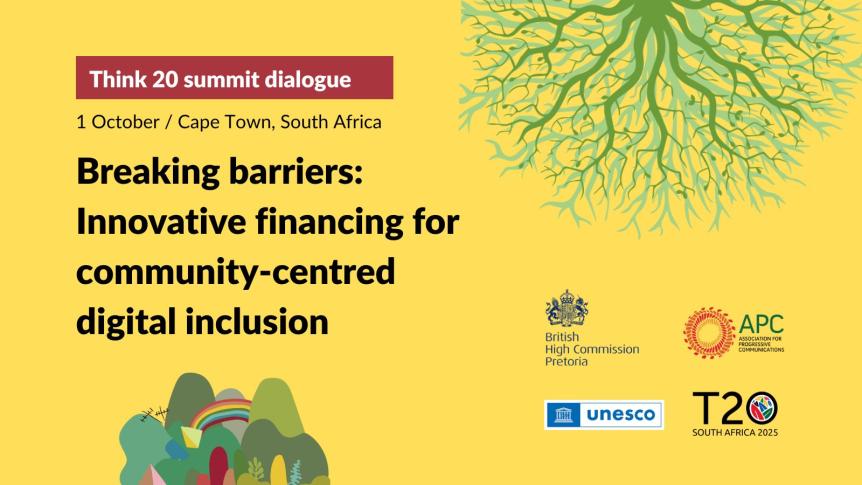
- Alessandra Lustrati. UK Government’s Foreign, Commonwealth & Development Office
- Anriette Esterhuysen. Association for Progressive Communications
- Brian Vo. Connect Humanity
- Carlos Rey-Moreno. Association for Progressive Communications
- Chris Conder. B4RN
- Claude Dorion. MCE Conseils
- Daniel D. Bradlow. University of Pretoria
- Dominic Cull. Ellipsis
- Doreen Bogdan-Martin. International Telecommunication Union
- Fola Odufuwa. Research ICT Africa
- Graziela Castello. Cetic.br
- Gustaff H. Iskandar. Common Room Networks Foundation
- Josephine Miliza. Association for Progressive Communications
- Kathleen Diga. Association for Progressive Communications
- Kgwarishi Cleopas Malatji. V-NET
- Laura Señán. Fundación Avina
- Nathi Mbele. AdNotes
- Nompucuko Nontombana. Independent Communications Authority of South Africa (ICASA)
- Renata Santoyo. Anatel
- Rob Floyd. African Center for Economic Transformation
- Saliem Fakir. African Climate Foundation
- Sandile Nzima. Development Bank of Southern Africa
- Simon Ellis. UNESCO
- Shireen Powell. Project Isizwe
- Tawfik Jelassi. UNESCO
- Yumna Panday. Zenzeleni Community Networks
Alessandra Lustrati
UK Government’s Foreign, Commonwealth & Development Office (FCDO)
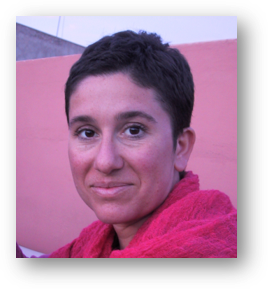
Alessandra Lustrati is the Head of Digital Development in the UK Government’s Foreign, Commonwealth & Development Office (FCDO). As part of her role, Alessandra leads the cluster responsible for the Digital Development Strategy (2024-2030), and oversees the global Digital Access Programme. Her current work is focused on supporting the inclusive, responsible and sustainable digital transformation of developing and emerging countries. Alessandra is a development economist by background, holds an MSc from the London School of Economics, and is an accredited Senior Private Sector Development Adviser. Before joining the UK Government, Alessandra worked with the United Nations, the European Commission, in academia, and in the non-profit and private sectors – with an emphasis on inclusive and sustainable economic growth, and a deep interest in the role of digital technologies for the reduction of poverty and inequality. She has co-authored several technical publications on economic development, including a book on business incubation for women-led small-scale enterprises. She has lived and worked extensively across Africa, Asia and Europe, and speaks seven languages.
Anriette Esterhuysen
Association for Progressive Communications
Anriette Esterhuysen served as the chairperson of the Multistakeholder Advisory Group of the United Nations Internet Governance Forum (IGF) from 2019 to 2021. She was executive director of the Association for Progressive Communications (APC) from 2000 to 2017 and continues to work with APC as Senior Advisor on Internet Governance. She convenes the annual African School on Internet Governance, a project of APC, Research ICT Africa at the University of Cape Town, and the African Union Commission. She serves on the governing bodies of the IGF Support Association, Connect Humanity, Digital Empowerment Foundation, and the South African Tertiary Education Network (TENET). Anriette was inducted into the Internet Hall of Fame as a Global Connecter in 2013 for her work in extending internet connectivity in Africa and received the Electronic Frontier Foundation Pioneer Award in 2015 for her work on defending and promoting human rights online.
Brian Vo
Connect Humanity
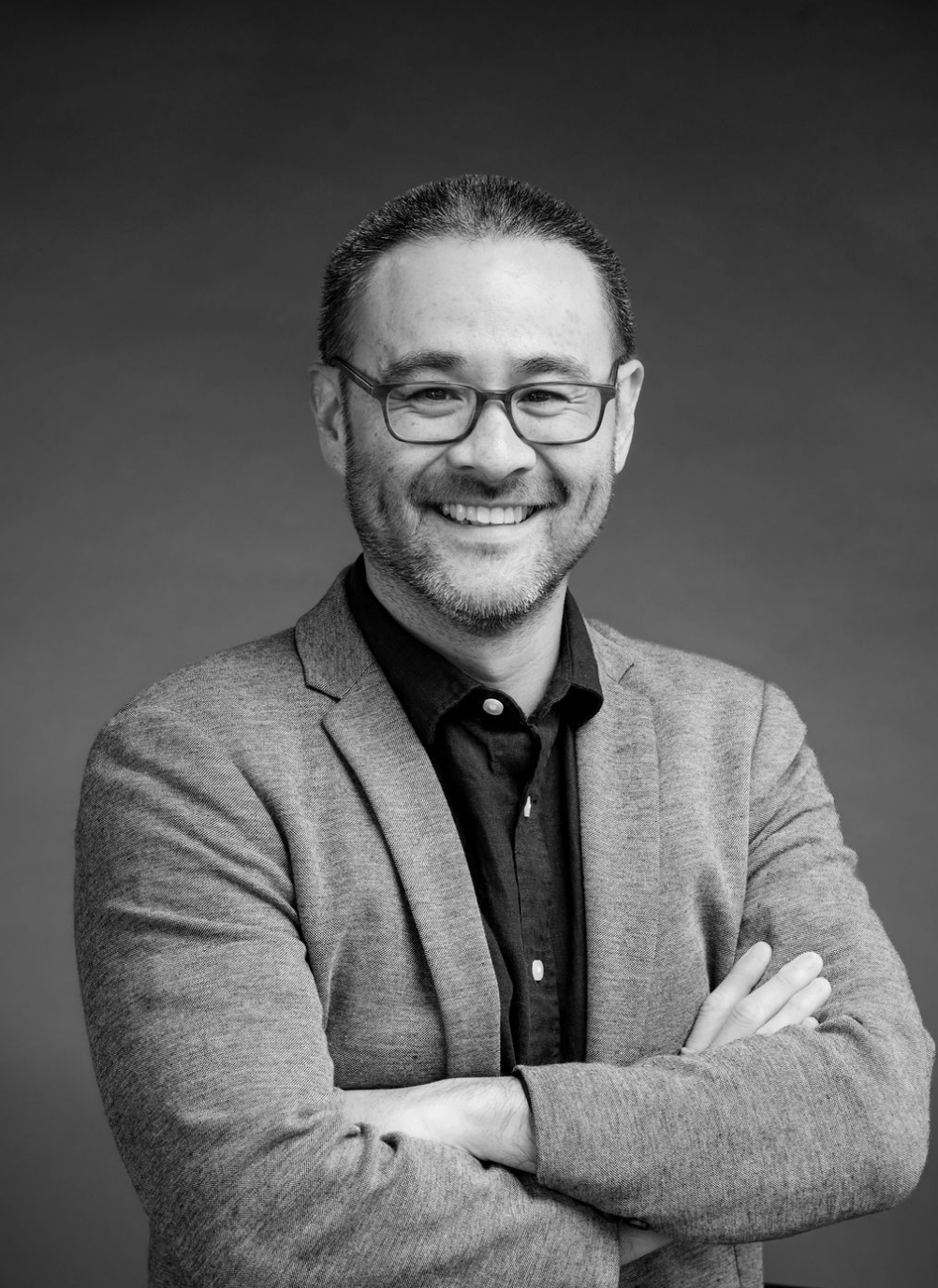 Brian Vo is the Chief Investment Officer at Connect Humanity, where he leads efforts to design financing solutions that empower communities and organisations advancing digital equity. Partnering with local leaders, social enterprises and funders, Brian helps structure the right blend of impact capital to overcome connectivity barriers and enable inclusive participation in the digital economy. With over two decades of experience in investment and strategy, Brian has executed more than USD 7 billion in direct transactions spanning private equity, impact debt and equity. Before joining Connect Humanity, he served as Vice President of Social Investment and Innovative Finance at Pact, Inc., deploying creative financing vehicles to scale global development impact. Previously, Brian directed outcomes-based transactions at Quantified Ventures and advised governments, nonprofits and corporations on economic development, growth strategies and capital allocation through McKinsey & Company. Earlier in his career, he held investment roles at Macquarie’s Private Equity Group and Jefferies & Company. Brian serves on the boards of the American Association for Public Broadband, Public Knowledge, Pacific Community Ventures, and if, A Foundation for Radical Possibility. He holds both an MBA and a BS from the Wharton School, University of Pennsylvania.
Brian Vo is the Chief Investment Officer at Connect Humanity, where he leads efforts to design financing solutions that empower communities and organisations advancing digital equity. Partnering with local leaders, social enterprises and funders, Brian helps structure the right blend of impact capital to overcome connectivity barriers and enable inclusive participation in the digital economy. With over two decades of experience in investment and strategy, Brian has executed more than USD 7 billion in direct transactions spanning private equity, impact debt and equity. Before joining Connect Humanity, he served as Vice President of Social Investment and Innovative Finance at Pact, Inc., deploying creative financing vehicles to scale global development impact. Previously, Brian directed outcomes-based transactions at Quantified Ventures and advised governments, nonprofits and corporations on economic development, growth strategies and capital allocation through McKinsey & Company. Earlier in his career, he held investment roles at Macquarie’s Private Equity Group and Jefferies & Company. Brian serves on the boards of the American Association for Public Broadband, Public Knowledge, Pacific Community Ventures, and if, A Foundation for Radical Possibility. He holds both an MBA and a BS from the Wharton School, University of Pennsylvania.
Carlos Rey-Moreno
Association for Progressive Communications
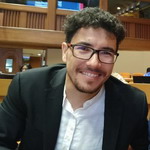 Carlos Rey-Moreno, after working in providing connectivity to remote health care centres in Latin America, has devoted the last 13 years to studying, developing and supporting complementary access solutions around the world. As part of his PhD he co-founded Zenzeleni Networks, and studied the main drivers that could make a community network in rural South Africa sustainable and scalable. After obtaining his doctorate in 2015, he went out and studied the common denominators across community networks in Africa, producing a seminal report on the topic, and co-organised the first five editions of the Summit on Community Networks in Africa. For the last seven years, he has been with the Association for Progressive Communications (APC), where he co-manages its community networks initiative, overseeing projects in Latin America, Africa and Asia. As part of that, he has provided training to regional regulatory associations and policy makers in the three regions, authored reports and written submissions to public consultations on the topic, and participated frequently as speaker and convener in internet governance and similar telecommunications policy forums.
Carlos Rey-Moreno, after working in providing connectivity to remote health care centres in Latin America, has devoted the last 13 years to studying, developing and supporting complementary access solutions around the world. As part of his PhD he co-founded Zenzeleni Networks, and studied the main drivers that could make a community network in rural South Africa sustainable and scalable. After obtaining his doctorate in 2015, he went out and studied the common denominators across community networks in Africa, producing a seminal report on the topic, and co-organised the first five editions of the Summit on Community Networks in Africa. For the last seven years, he has been with the Association for Progressive Communications (APC), where he co-manages its community networks initiative, overseeing projects in Latin America, Africa and Asia. As part of that, he has provided training to regional regulatory associations and policy makers in the three regions, authored reports and written submissions to public consultations on the topic, and participated frequently as speaker and convener in internet governance and similar telecommunications policy forums.
Chris Conder
B4RN
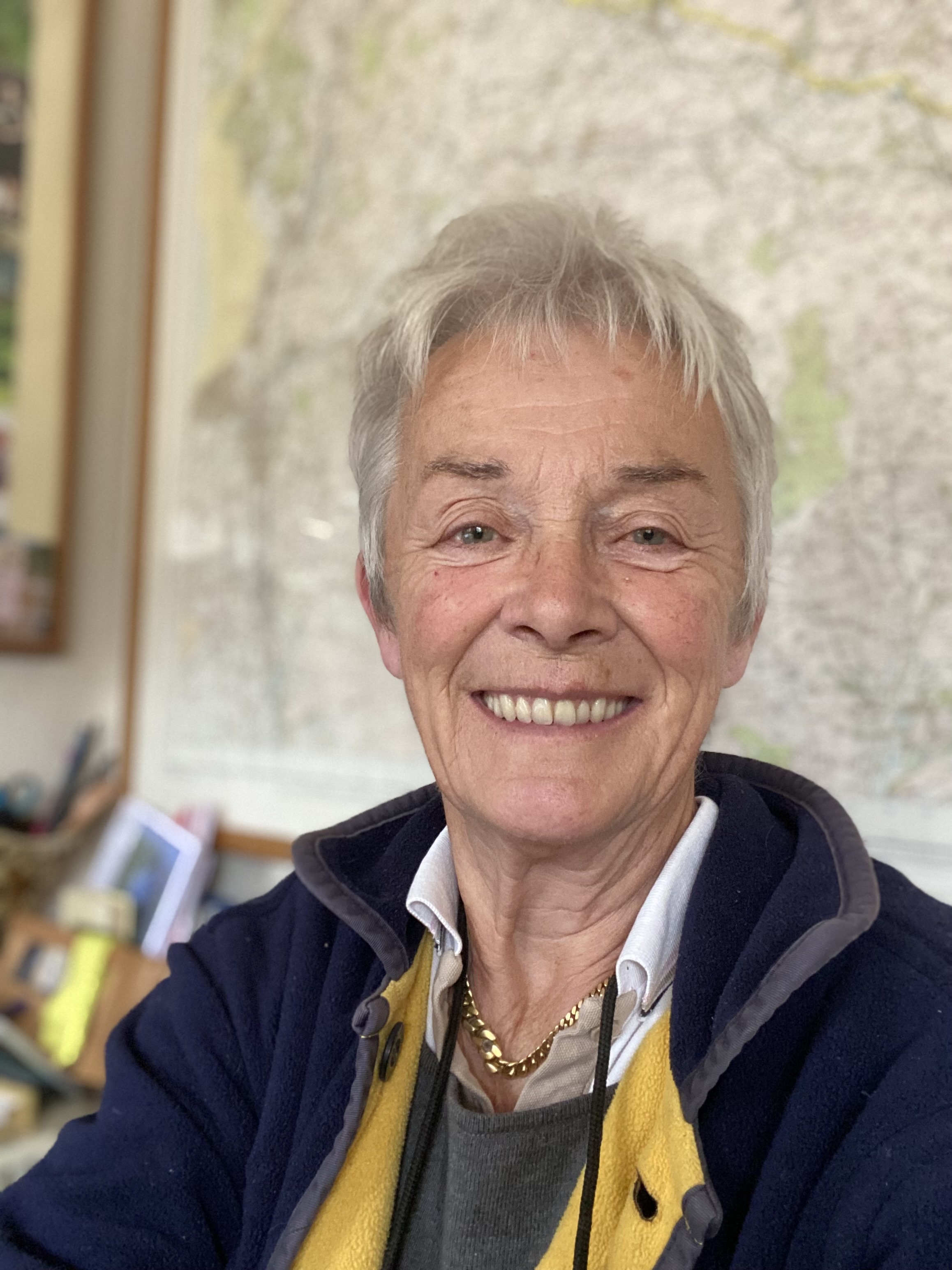
Chris Conder is a farmer's wife from the Lune Valley in Lancashire, UK. She joined with others in 2000 to get broadband to their farms, and struggled for years trying to get someone to help them. Eventually in 2003 they got help and built a wireless network with Lancaster University. They ran this until 2015, but in the meantime they started B4RN. By working together, they mastered the skills of laying the duct infrastructure, blowing fibre through it, and learning to fuse the fibre to build their network. Chris is a great believer in helping people to help themselves and has the evidence to prove that communities can achieve great things with a bit of help. The whole story of B4RN is now written by the people involved and is free to download here.
Claude Dorion
MCE Conseils
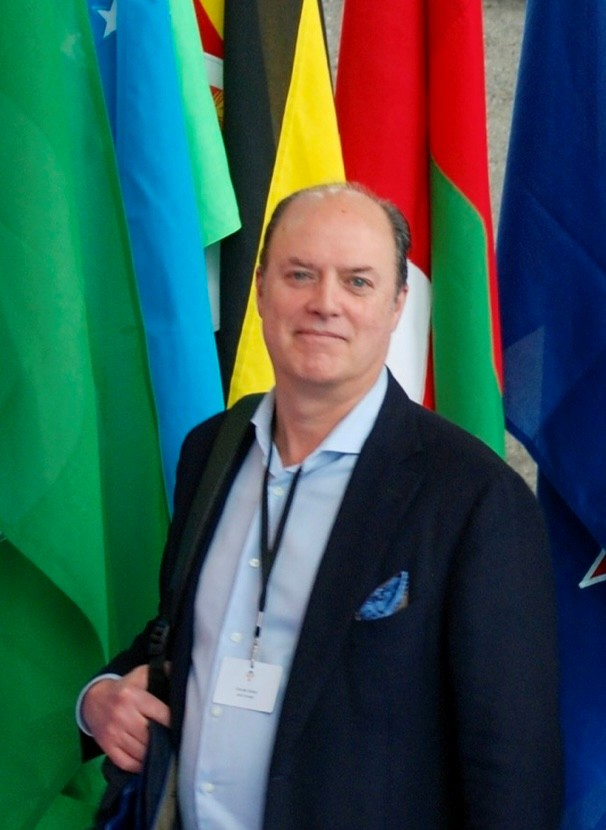
An economist, Claude Dorion runs a management, governance, economics and strategy consulting firm specialising in supporting public and collective enterprises. MCE Conseils carries out more than 250 mandates each year in support of businesses, cooperatives, institutions and ministries. He has led interventions in many countries in the Americas, Europe and Africa. He sits on the boards of ESS Forum International, INAISE, CIRIEC Canada, Chantier de l’économie sociale and the Fonds d’investissement solidaire international du Québec. He has been published by Cap Finance, the ILO and CIRIEC. Claude is a member of the Working Group on Finance of the United Nations Task Force on Social Economy. He has successfully carried out multiple interventions for solidarity finance institutions in Canada and has published through CIRIEC International a strategic analysis of the Québec ecosystem of financing social economy. He just concluded the strategic planning of CAP Finance, Québec’s social finance network of institutions. He is presently mandated to build a social impact measurement system for CAP Finance. He has been involved in a national strategic mandate on bringing financial tools available for green transition for SMEs (2020).
Daniel D. Bradlow
University of Pretoria
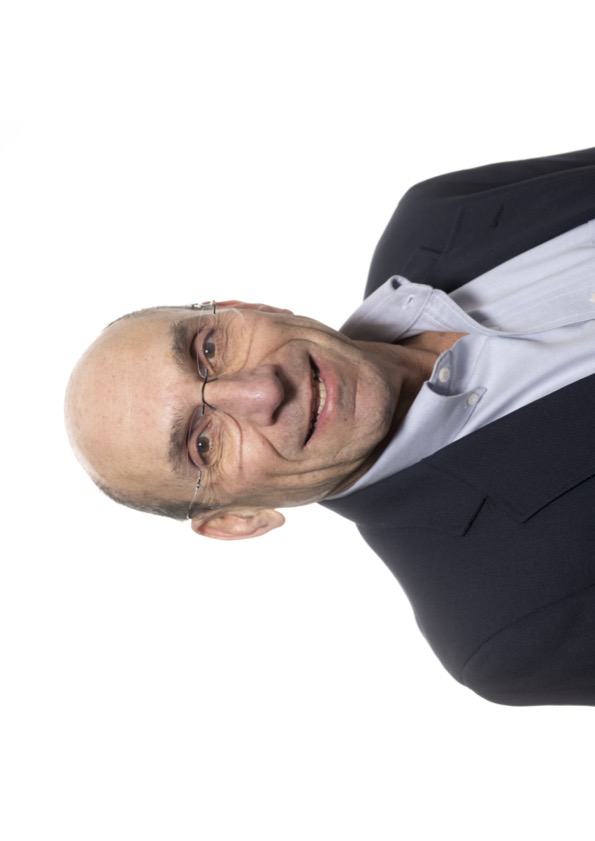 Daniel D. Bradlow is Professor/Senior Research Fellow, Centre for Advancement of Scholarship, University of Pretoria; Senior G20 Advisor, South African Institute of International Affairs; Co-Chair T20 Financing for Sustainable Development Task Force; Compliance Officer, Social and Environmental Compliance Unit, UNDP; Senior Non-Resident Fellow, Global Development Policy Center, Boston University; Professor Emeritus, American University Washington College of Law; and Co-Chair, Academic Circle on Right to Development. He was previously the South African Research Chair Initiative (SARCHI) Professor of International Development Law and African Economic Relations, Centre for Human Rights, University of Pretoria; Head of International Economic Relations and Policy Department, South African Reserve Bank; Chair of Roster of Experts, Independent Review Mechanism, African Development Bank; and consultant to numerous international organisations. His recent publications include The Law of the International Financial Institutions (OUP, 2023), A New Conceptual Framework for African Sovereign Debt: Finding an Optimal Outcome that Addresses 5 Challenges, 33 Journal of African Economics Supplement 2, pp 162-177 (2024), and Re-thinking the sustainability of sovereign debt (with R. Lastra and S. Park), 27 Journal of International Economic 2 (2024).
Daniel D. Bradlow is Professor/Senior Research Fellow, Centre for Advancement of Scholarship, University of Pretoria; Senior G20 Advisor, South African Institute of International Affairs; Co-Chair T20 Financing for Sustainable Development Task Force; Compliance Officer, Social and Environmental Compliance Unit, UNDP; Senior Non-Resident Fellow, Global Development Policy Center, Boston University; Professor Emeritus, American University Washington College of Law; and Co-Chair, Academic Circle on Right to Development. He was previously the South African Research Chair Initiative (SARCHI) Professor of International Development Law and African Economic Relations, Centre for Human Rights, University of Pretoria; Head of International Economic Relations and Policy Department, South African Reserve Bank; Chair of Roster of Experts, Independent Review Mechanism, African Development Bank; and consultant to numerous international organisations. His recent publications include The Law of the International Financial Institutions (OUP, 2023), A New Conceptual Framework for African Sovereign Debt: Finding an Optimal Outcome that Addresses 5 Challenges, 33 Journal of African Economics Supplement 2, pp 162-177 (2024), and Re-thinking the sustainability of sovereign debt (with R. Lastra and S. Park), 27 Journal of International Economic 2 (2024).
Dominic Cull
Ellipsis
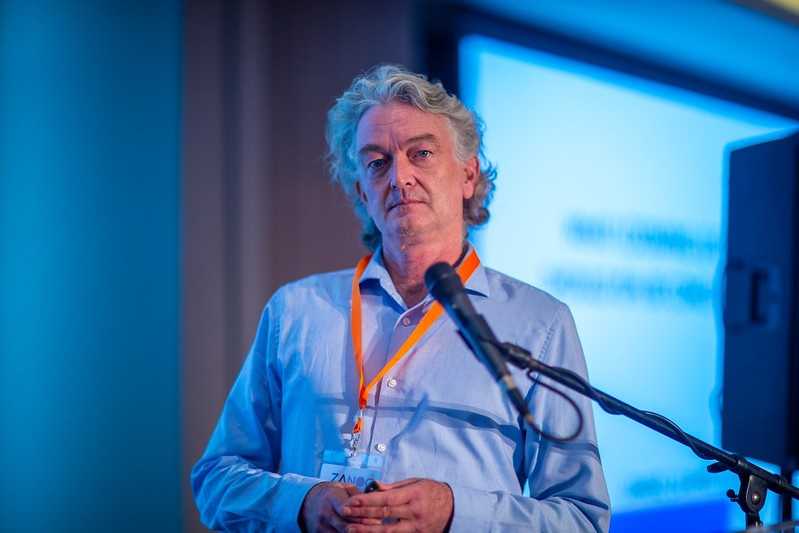 Dominic Cull is a recognised policy and regulatory expert in the South African ICT industry and the CEO of Ellipsis, a consulting firm focused on the regulatory and commercial aspects of electronic communications. Dominic acts as regulatory advisor to a number of industry associations and has participated in all major ICT policy, legislative and regulatory processes over the past two decades. He has also served as a member of the advisory committee to the South African Law Reform Commission, drafting legislation on children and online pornography, and has drafted standard municipal bylaws on rapid deployment of digital connectivity infrastructure. He is currently advising the Department of Communications and Digital Technologies (DCDT) on legislative reform and assisting the National Planning Commission to formulate ICT policy and implementation recommendations under the World Bank Beyond the Gap methodology. Dominic has a long involvement with community networks and was recently appointed as the national policy champion for community-centred connectivity initiatives (CCCIs) in South Africa. Otherwise: lives in Cape Town, loves throwing frisbees on beaches.
Dominic Cull is a recognised policy and regulatory expert in the South African ICT industry and the CEO of Ellipsis, a consulting firm focused on the regulatory and commercial aspects of electronic communications. Dominic acts as regulatory advisor to a number of industry associations and has participated in all major ICT policy, legislative and regulatory processes over the past two decades. He has also served as a member of the advisory committee to the South African Law Reform Commission, drafting legislation on children and online pornography, and has drafted standard municipal bylaws on rapid deployment of digital connectivity infrastructure. He is currently advising the Department of Communications and Digital Technologies (DCDT) on legislative reform and assisting the National Planning Commission to formulate ICT policy and implementation recommendations under the World Bank Beyond the Gap methodology. Dominic has a long involvement with community networks and was recently appointed as the national policy champion for community-centred connectivity initiatives (CCCIs) in South Africa. Otherwise: lives in Cape Town, loves throwing frisbees on beaches.
Doreen Bogdan-Martin
International Telecommunication Union
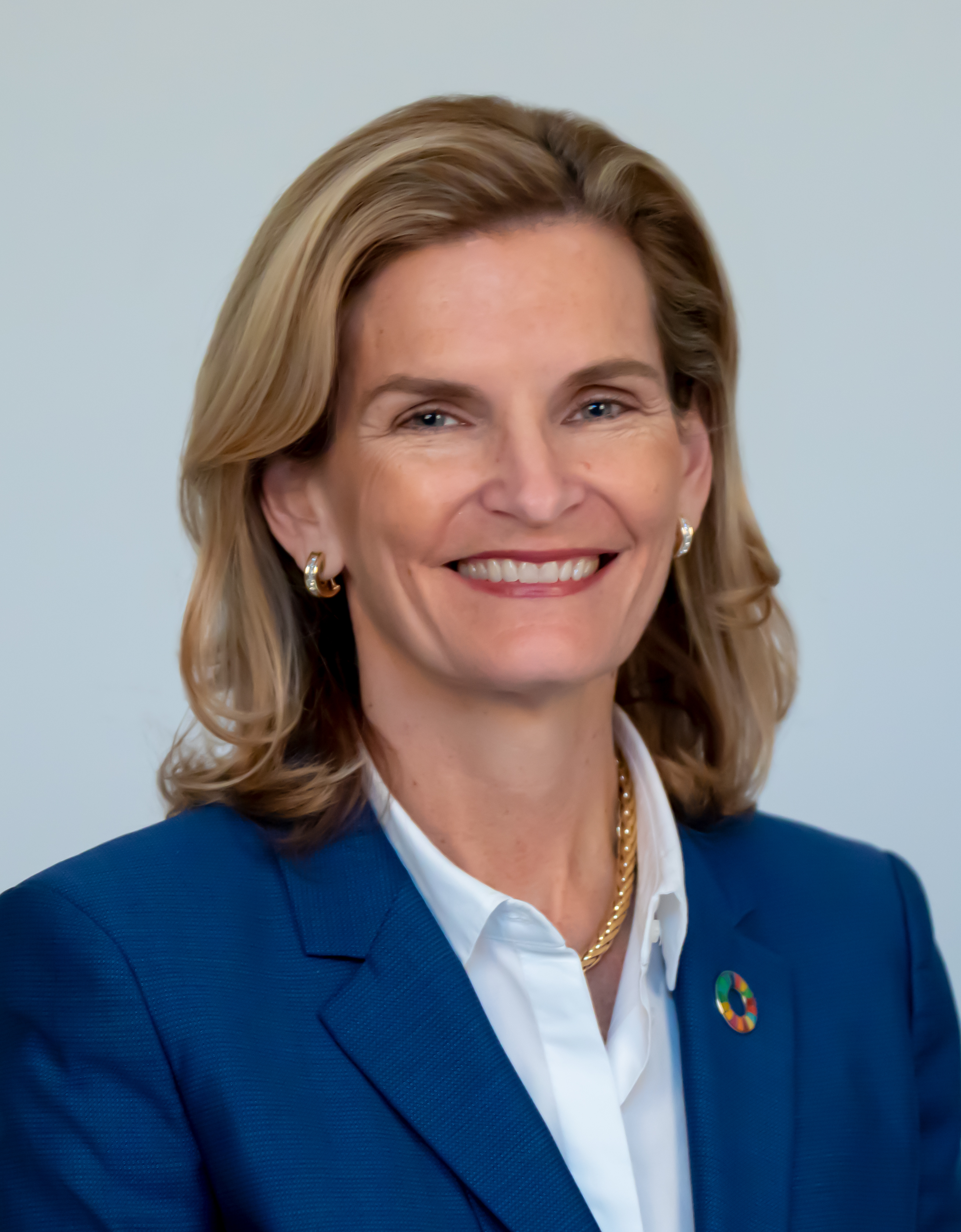 Doreen Bogdan-Martin took office as Secretary-General of the International Telecommunication Union (ITU) on 1 January 2023.
Doreen Bogdan-Martin took office as Secretary-General of the International Telecommunication Union (ITU) on 1 January 2023.
With over three decades of leadership experience in global telecommunications policy, Ms. Bogdan-Martin has emphasised the need for digital transformation to achieve economic prosperity, job creation, skills development, gender equality, and socioeconomic inclusion, as well as to build circular economies, reduce climate impact, and save lives. Her historic election by ITU Member States in September 2022 made her the first woman ever to head the 160-year-old organisation. Known for mobilising innovative partnerships, she aims to promote meaningful connectivity, intensify cooperation to connect the unconnected, and strengthen the alignment of digital technologies with inclusive sustainable development.
Fola Odufuwa
Research ICT Africa
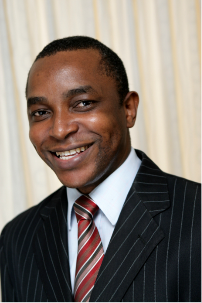 Fola Odufuwa is a digital inclusion and infrastructure policy specialist with over three decades of experience shaping equitable access across Africa and the Pacific. His work spans digital payments, telecommunications, market analysis, and inclusive infrastructure, with a particular focus on Nigeria and underserved communities. Fola has led national and regional initiatives on digital identity, ICT tax reform, and broadband infrastructure, and has advised on multi-million dollar transactions involving mobile operators and fibre backbone projects. He has contributed to regulatory frameworks for community networks, supported policy development for digital trade and digital economy strategies, and provided strategic input on investment readiness and market viability for telecom ventures. He has also worked extensively on gender-responsive digital inclusion, including research on women’s access to mobile services and the role of digitalisation in strengthening MSMEs under the AfCFTA. His contributions to the After Access survey in Nigeria and his work with APC’s LocNet programme have informed policy and practice on community-centred connectivity. Fola holds an M.Sc. from the University of Ibadan and a BSc (Hons) in Physics from Lagos State University, and he has authored over 30 publications on ICT, digital finance, and inclusive infrastructure in Africa.
Fola Odufuwa is a digital inclusion and infrastructure policy specialist with over three decades of experience shaping equitable access across Africa and the Pacific. His work spans digital payments, telecommunications, market analysis, and inclusive infrastructure, with a particular focus on Nigeria and underserved communities. Fola has led national and regional initiatives on digital identity, ICT tax reform, and broadband infrastructure, and has advised on multi-million dollar transactions involving mobile operators and fibre backbone projects. He has contributed to regulatory frameworks for community networks, supported policy development for digital trade and digital economy strategies, and provided strategic input on investment readiness and market viability for telecom ventures. He has also worked extensively on gender-responsive digital inclusion, including research on women’s access to mobile services and the role of digitalisation in strengthening MSMEs under the AfCFTA. His contributions to the After Access survey in Nigeria and his work with APC’s LocNet programme have informed policy and practice on community-centred connectivity. Fola holds an M.Sc. from the University of Ibadan and a BSc (Hons) in Physics from Lagos State University, and he has authored over 30 publications on ICT, digital finance, and inclusive infrastructure in Africa.
Graziela Castello
Cetic.br

Graziela Castello is a social scientist and researcher with 25 years of experience, and is currently the Coordinator of Sectoral Studies at the Regional Centre for Studies on the Development of the Information Society (Cetic.br).
Cetic.br is a department of the Brazilian Network Information Centre (NIC.br), linked to the Brazilian Internet Steering Committee (CGI.br)
Gustaff H. Iskandar
Common Room Networks Foundation
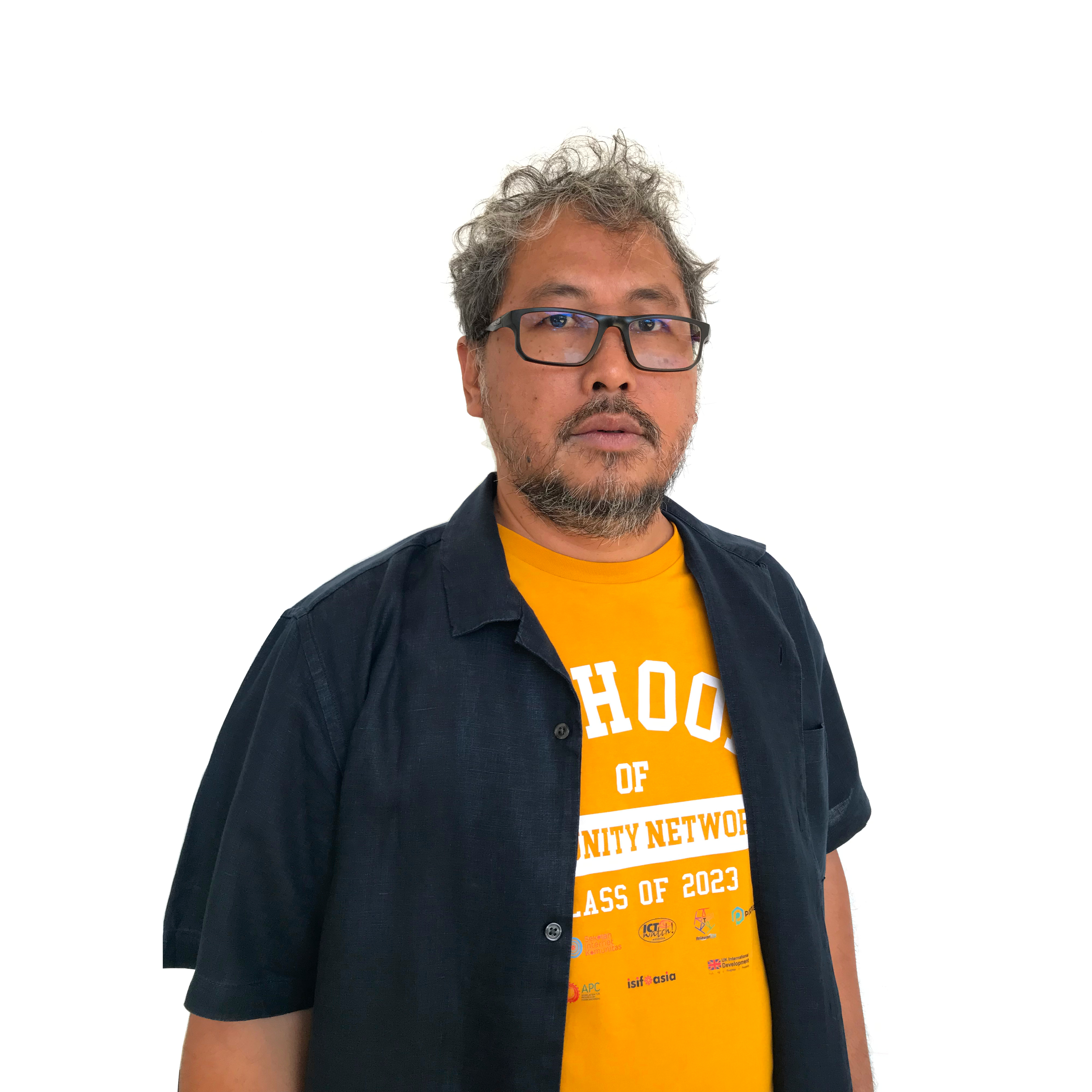 Born in Sukabumi, West Java in 1974, Gustaff Harriman Iskandar graduated from the Fine Arts Department, Bandung Institute of Technology in 1999. He then managed Poros Art Management, where he curated, wrote and organised art exhibitions until 2000. Later on he initiated Trolley Magazine (2000-2001), an independent local magazine focused on art, culture, music and fashion. In late 2001, he co-founded Bandung Center for New Media Arts with Reina Wulansari, R. E. Hartanto and T. Reza Ismail, dedicating himself to developing media arts and multidisciplinary artistic practices in Indonesia. With the later development of Bandung Center for New Media Arts, he was engaged in the formation of Common Room Networks Foundation (Common Room) in 2004. Since its inception, Common Room has been committed to provide space for freedom of expression and community empowerment that utilises arts and culture, including internet and digital media. With the organisation, he launched an urban/rural platform to foster creativity, innovation and social transformation in 2013. Apart from his work with Common Room, he manages a small farm in Sukabumi. Gustaff also writes and speaks at discussions and symposiums. He currently lives and works in Bandung, where he continues his artistic endeavours and developing projects that integrate arts, science and technology, including community-centered connectivity initiatives in rural and remote areas of Indonesia.
Born in Sukabumi, West Java in 1974, Gustaff Harriman Iskandar graduated from the Fine Arts Department, Bandung Institute of Technology in 1999. He then managed Poros Art Management, where he curated, wrote and organised art exhibitions until 2000. Later on he initiated Trolley Magazine (2000-2001), an independent local magazine focused on art, culture, music and fashion. In late 2001, he co-founded Bandung Center for New Media Arts with Reina Wulansari, R. E. Hartanto and T. Reza Ismail, dedicating himself to developing media arts and multidisciplinary artistic practices in Indonesia. With the later development of Bandung Center for New Media Arts, he was engaged in the formation of Common Room Networks Foundation (Common Room) in 2004. Since its inception, Common Room has been committed to provide space for freedom of expression and community empowerment that utilises arts and culture, including internet and digital media. With the organisation, he launched an urban/rural platform to foster creativity, innovation and social transformation in 2013. Apart from his work with Common Room, he manages a small farm in Sukabumi. Gustaff also writes and speaks at discussions and symposiums. He currently lives and works in Bandung, where he continues his artistic endeavours and developing projects that integrate arts, science and technology, including community-centered connectivity initiatives in rural and remote areas of Indonesia.
Josephine Miliza
Association for Progressive Communications
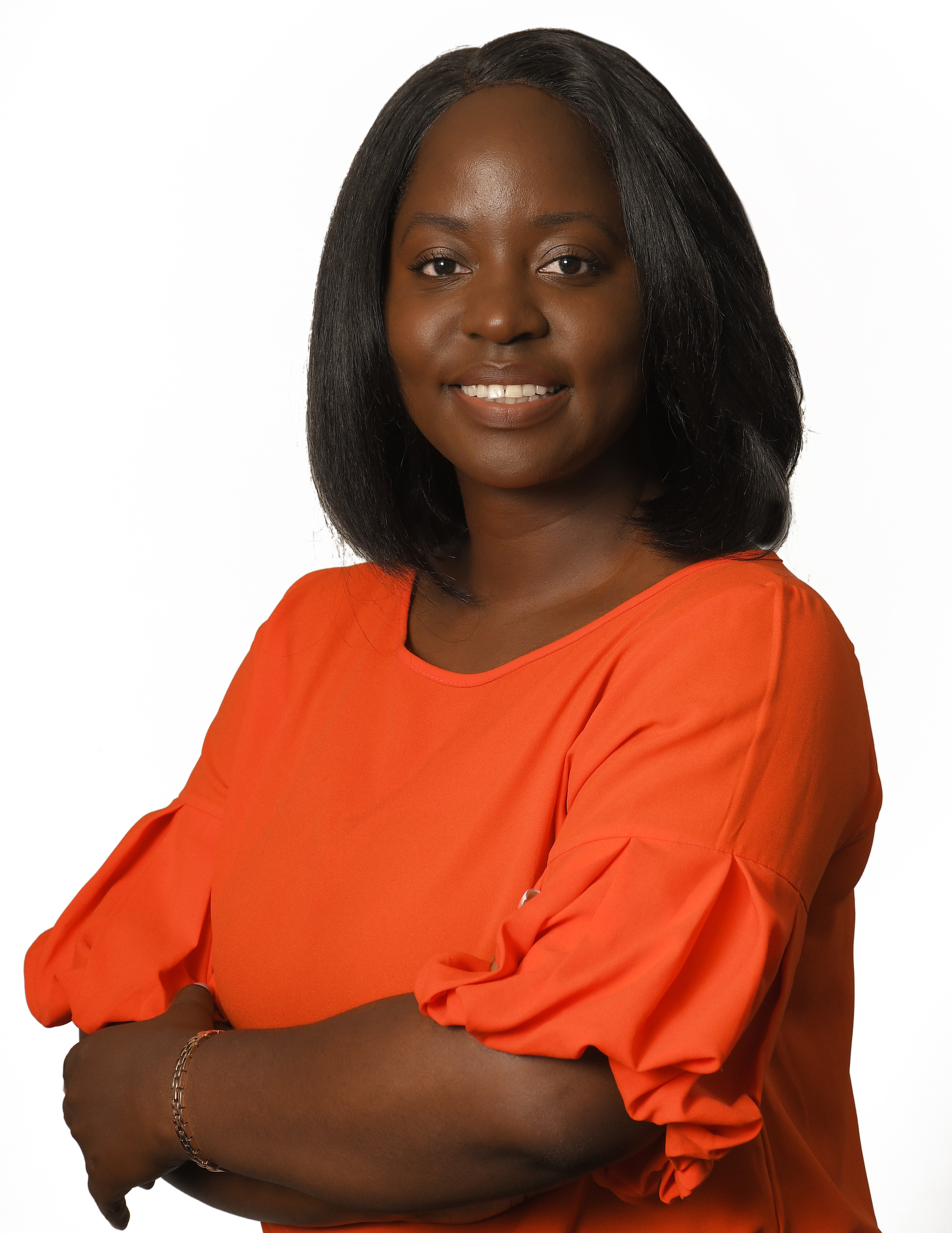 Josephine Miliza is Policy and Regulation Lead in the Local Networks (LocNet) Initiative. She is a telecommunications engineer and digital inclusion expert from Nairobi, Kenya, with over a decade of experience advancing community-centred connectivity models across Africa. Her work spans policy advocacy, regulatory engagement, research, capacity building, and technical support in multistakeholder environments. She has collaborated with stakeholders across multiple countries to design innovative frameworks that address spectrum access, licensing and financing barriers for small-scale connectivity providers. As Policy and Regulation Lead for LocNet, Josephine collaborates with regional and global partners to shape digital policy agendas and integrate community perspectives into connectivity strategies. She has been instrumental in building the community networks movement in Africa, serving as co-chair of the Africa Community Networks Summit, which evolved from in-person events in Kenya, South Africa and Tanzania to virtual gatherings during the COVID-19 pandemic. Josephine has also contributed to global internet governance as a member of the United Nations Internet Governance Forum Multistakeholder Advisory Group, shaping discussions on digital rights, inclusion, and the future of internet governance.
Josephine Miliza is Policy and Regulation Lead in the Local Networks (LocNet) Initiative. She is a telecommunications engineer and digital inclusion expert from Nairobi, Kenya, with over a decade of experience advancing community-centred connectivity models across Africa. Her work spans policy advocacy, regulatory engagement, research, capacity building, and technical support in multistakeholder environments. She has collaborated with stakeholders across multiple countries to design innovative frameworks that address spectrum access, licensing and financing barriers for small-scale connectivity providers. As Policy and Regulation Lead for LocNet, Josephine collaborates with regional and global partners to shape digital policy agendas and integrate community perspectives into connectivity strategies. She has been instrumental in building the community networks movement in Africa, serving as co-chair of the Africa Community Networks Summit, which evolved from in-person events in Kenya, South Africa and Tanzania to virtual gatherings during the COVID-19 pandemic. Josephine has also contributed to global internet governance as a member of the United Nations Internet Governance Forum Multistakeholder Advisory Group, shaping discussions on digital rights, inclusion, and the future of internet governance.
Kathleen Diga
Association for Progressive Communications
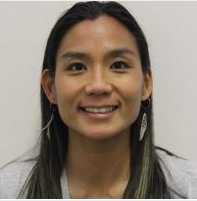 Kathleen Diga has worked for over 15 years in the information and communication technology for development (ICT4D) research and civil society space. She is currently manager for the APC Local Access Programme. This programme facilitates learning and exchange among community-centred connectivity projects and persons based in the global South. She provides administrative oversight, overall coordination, strategic direction and monitoring, evaluation and learning functions. In her previous work, she helped to coordinate research teams and individuals around conferences and research outputs. Over the period, she had the opportunity to visit several African community-centred connectivity initiatives in Kenya, Ghana, South Africa and Uganda. She has written numerous publications on ICT4D and has been a co-editor or co-author on several publications, including FAO’s 2024 edited book, Collaborative Change: Towards inclusive rural communications services, Internet Governance Forum articles on community networks (2020 and 2021), the Global Information Society Watch report on Community Networks (2018), a special issue journal on ICT ecosystems (2016) and an edited book on poverty and ICTs in East Africa (2014). Her final PhD research was in understanding the changing ICT asset portfolio within households in South Africa and how these items are contributing to well-being and wealth changes.
Kathleen Diga has worked for over 15 years in the information and communication technology for development (ICT4D) research and civil society space. She is currently manager for the APC Local Access Programme. This programme facilitates learning and exchange among community-centred connectivity projects and persons based in the global South. She provides administrative oversight, overall coordination, strategic direction and monitoring, evaluation and learning functions. In her previous work, she helped to coordinate research teams and individuals around conferences and research outputs. Over the period, she had the opportunity to visit several African community-centred connectivity initiatives in Kenya, Ghana, South Africa and Uganda. She has written numerous publications on ICT4D and has been a co-editor or co-author on several publications, including FAO’s 2024 edited book, Collaborative Change: Towards inclusive rural communications services, Internet Governance Forum articles on community networks (2020 and 2021), the Global Information Society Watch report on Community Networks (2018), a special issue journal on ICT ecosystems (2016) and an edited book on poverty and ICTs in East Africa (2014). Her final PhD research was in understanding the changing ICT asset portfolio within households in South Africa and how these items are contributing to well-being and wealth changes.
Kgwarishi Cleopas Malatji
V-NET
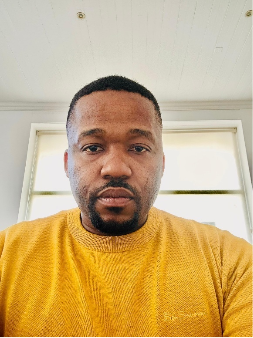 Kgwarishi Cleopas Malatji currently serves as Network Manager for V-NET, a public WiFi network operated by Violence Prevention through Urban Upgrading NPC, which provides connectivity to over 70,000 people across Cape Town, with a particular focus on informal settlements and townships. A trained geo-informatician, Kgwarishi brings strong expertise in geographical information systems, data management, wireless networks, and project leadership. His professional journey spans land reform, basic education, and technology-driven community solutions. He has collaborated with government institutions, non-profit organisations, and private sector partners, consistently bridging the gap between data-driven insights and real-world applications. His projects have helped municipalities improve service delivery and empowered communities through expanded access to digital infrastructure. Beyond his technical roles, Kgwarishi is an entrepreneur and founder of Zafrotelecoms, a company specialising in solar power, networking services, and innovative connectivity solutions. One of its flagship projects, Taxi-WiFi, provides free internet access to public transport passengers, extending digital inclusion on the move. He has also contributed as a technical advisor and facilitator for the School of Community Networks South Africa, where he shared practical knowledge on building sustainable community networks. Kgwarishi is currently pursuing a Master’s in Project Management at the University of Cape Town, further developing his leadership, strategic planning, and innovation capabilities.
Kgwarishi Cleopas Malatji currently serves as Network Manager for V-NET, a public WiFi network operated by Violence Prevention through Urban Upgrading NPC, which provides connectivity to over 70,000 people across Cape Town, with a particular focus on informal settlements and townships. A trained geo-informatician, Kgwarishi brings strong expertise in geographical information systems, data management, wireless networks, and project leadership. His professional journey spans land reform, basic education, and technology-driven community solutions. He has collaborated with government institutions, non-profit organisations, and private sector partners, consistently bridging the gap between data-driven insights and real-world applications. His projects have helped municipalities improve service delivery and empowered communities through expanded access to digital infrastructure. Beyond his technical roles, Kgwarishi is an entrepreneur and founder of Zafrotelecoms, a company specialising in solar power, networking services, and innovative connectivity solutions. One of its flagship projects, Taxi-WiFi, provides free internet access to public transport passengers, extending digital inclusion on the move. He has also contributed as a technical advisor and facilitator for the School of Community Networks South Africa, where he shared practical knowledge on building sustainable community networks. Kgwarishi is currently pursuing a Master’s in Project Management at the University of Cape Town, further developing his leadership, strategic planning, and innovation capabilities.
Laura Señán
Fundación Avina
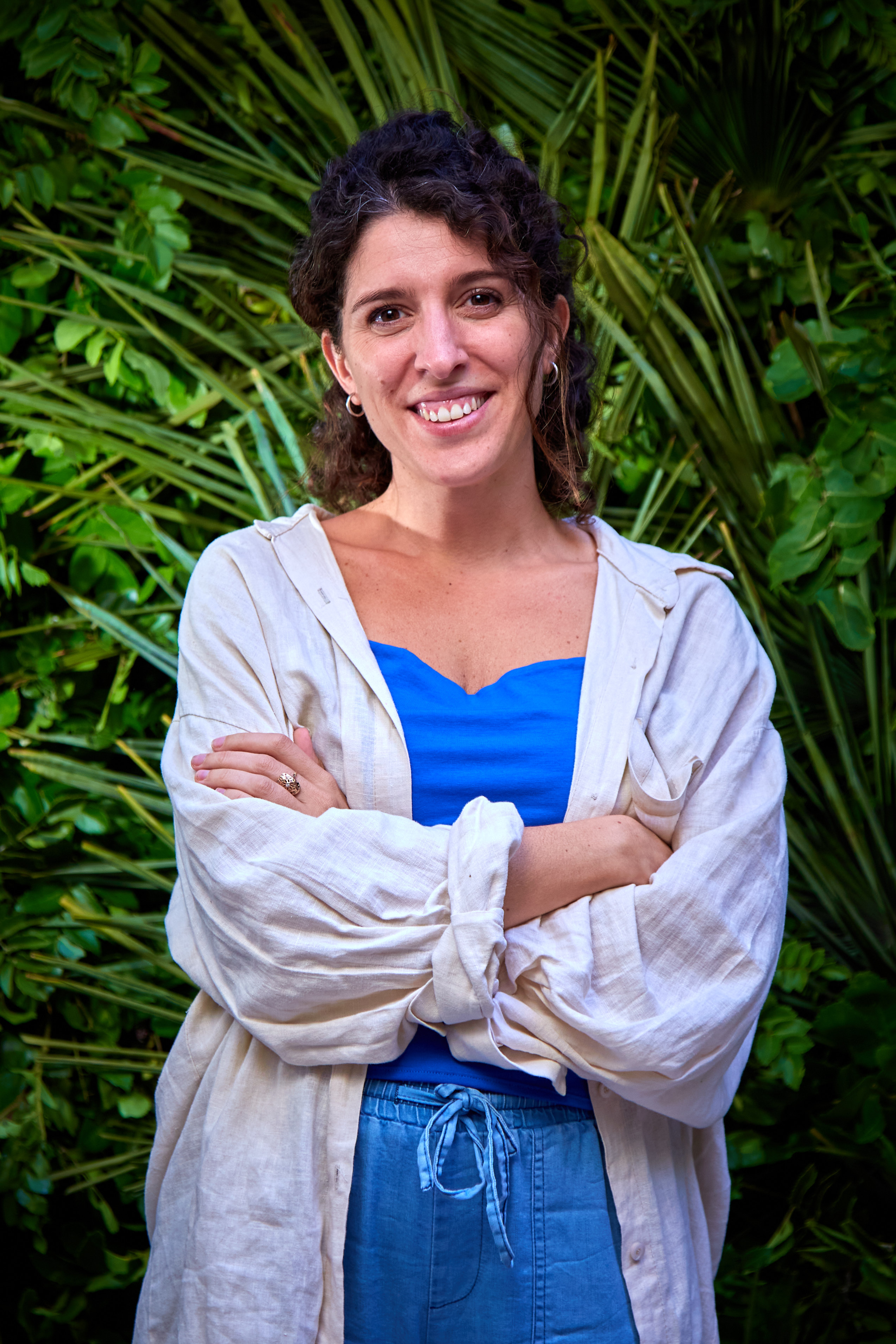 Laura Señán is a skilled young professional with over 10 years of experience in the non-profit sector. Currently serving as the Director of Strategic Partnerships at Fundación Avina, Laura has been with the organisation for the past seven years, and has played a pivotal role in cultivating impactful alliances across sectors. Her work advances key agendas such as climate action, democratic innovation, and the promotion of a just and regenerative economy. Coming from a Global South foundation, Laura has been instrumental in developing transformative partnerships that contribute to power shifts and systemic transformations for local realities. She is particularly focused on innovative financing approaches that strengthen community agency and enable inclusion and democratic ecosystems. Her background is in Political Science, and she holds an MSc in International Relations from the University of Amsterdam. With her heart and mind rooted in Latin America, Laura lives in Barcelona with her partner, their two-year-old daughter, and their five-month-old baby.
Laura Señán is a skilled young professional with over 10 years of experience in the non-profit sector. Currently serving as the Director of Strategic Partnerships at Fundación Avina, Laura has been with the organisation for the past seven years, and has played a pivotal role in cultivating impactful alliances across sectors. Her work advances key agendas such as climate action, democratic innovation, and the promotion of a just and regenerative economy. Coming from a Global South foundation, Laura has been instrumental in developing transformative partnerships that contribute to power shifts and systemic transformations for local realities. She is particularly focused on innovative financing approaches that strengthen community agency and enable inclusion and democratic ecosystems. Her background is in Political Science, and she holds an MSc in International Relations from the University of Amsterdam. With her heart and mind rooted in Latin America, Laura lives in Barcelona with her partner, their two-year-old daughter, and their five-month-old baby.
Nathi Mbele
AdNotes
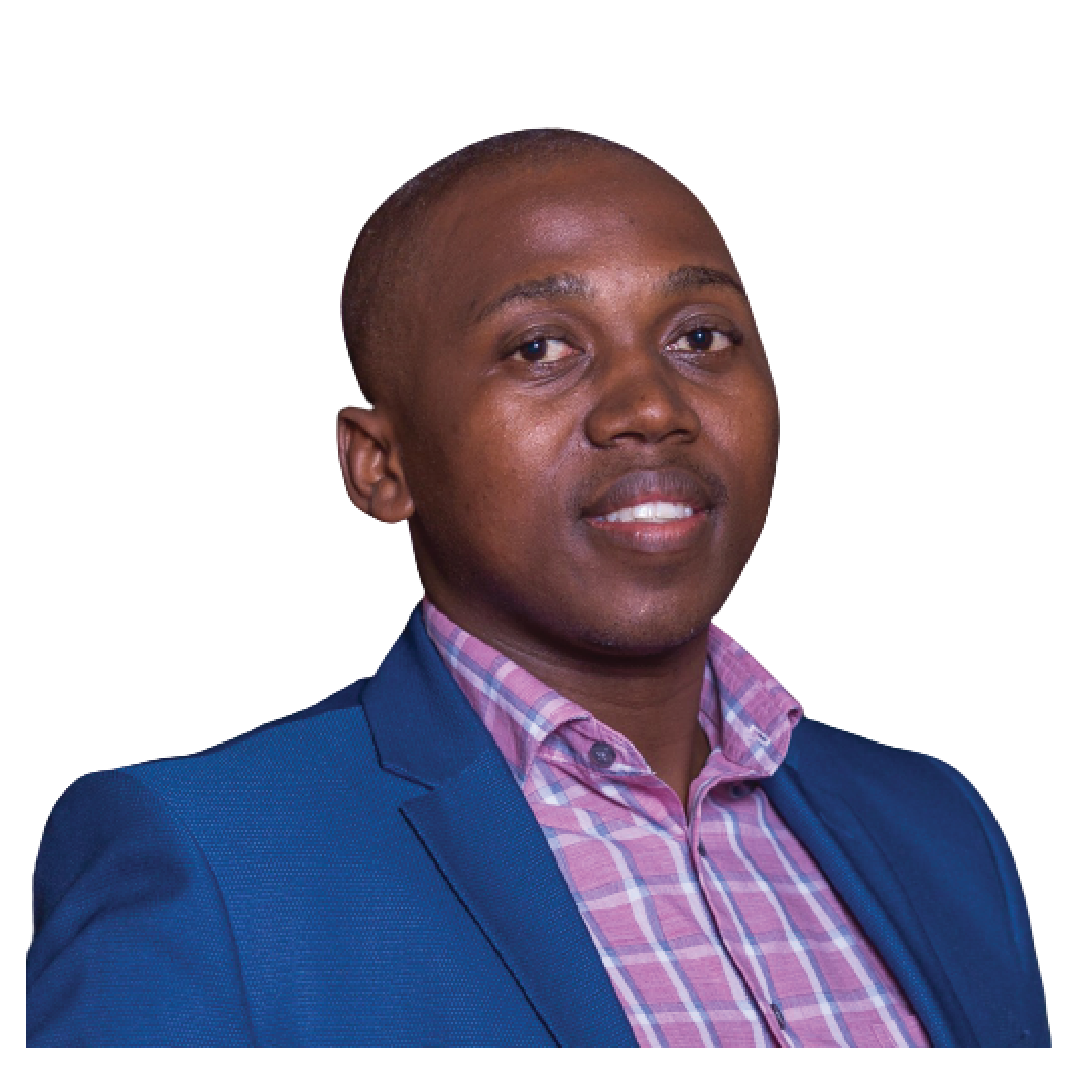 Nathi Mbele is the Founder and Chief Executive at AdNotes, a multiple award-winning South African-based internet service provider (ISP) with a reach of 30 million people through its own and partner networks. AdNotes is actively conducting RD&I in the telecoms space, with a focus on Dynamic Spectrum Access (DSA), including the commercialisation of Non-Terrestrial Networks (NTNs) mixed use with 4th and 5th generation (4G/5G) wireless networks in Africa and Asia. AdNotes is fully licensed by the Independent Communications Authority of South Africa (ICASA) and certified by the Film and Publication Board (FPB) to operate and provide internet services in South Africa. As a member of the Internet Service Provider Association (ISPA) and the Wireless Access Providers Association (WAPA), AdNotes upholds the ISPA Code of Conduct. Nathi also founded AdNotes Digital, the only licensed operator of the Spectrum Switch with R1.5 billion worth of spectrum under management. The Spectrum Switch is designed to enable the deployment of affordable broadband connectivity for community network operators, mobile network operators and ISPs to meet their broadband needs for deployments in hard-to-reach rural areas. The Spectrum Switch is powered by the Council for Scientific and Industrial Research’s (CSIR) Secondary Geo-location Spectrum Database (S-GLSD) Technology.
Nathi Mbele is the Founder and Chief Executive at AdNotes, a multiple award-winning South African-based internet service provider (ISP) with a reach of 30 million people through its own and partner networks. AdNotes is actively conducting RD&I in the telecoms space, with a focus on Dynamic Spectrum Access (DSA), including the commercialisation of Non-Terrestrial Networks (NTNs) mixed use with 4th and 5th generation (4G/5G) wireless networks in Africa and Asia. AdNotes is fully licensed by the Independent Communications Authority of South Africa (ICASA) and certified by the Film and Publication Board (FPB) to operate and provide internet services in South Africa. As a member of the Internet Service Provider Association (ISPA) and the Wireless Access Providers Association (WAPA), AdNotes upholds the ISPA Code of Conduct. Nathi also founded AdNotes Digital, the only licensed operator of the Spectrum Switch with R1.5 billion worth of spectrum under management. The Spectrum Switch is designed to enable the deployment of affordable broadband connectivity for community network operators, mobile network operators and ISPs to meet their broadband needs for deployments in hard-to-reach rural areas. The Spectrum Switch is powered by the Council for Scientific and Industrial Research’s (CSIR) Secondary Geo-location Spectrum Database (S-GLSD) Technology.
Nompucuko Nontombana
Independent Communications Authority of South Africa (ICASA)
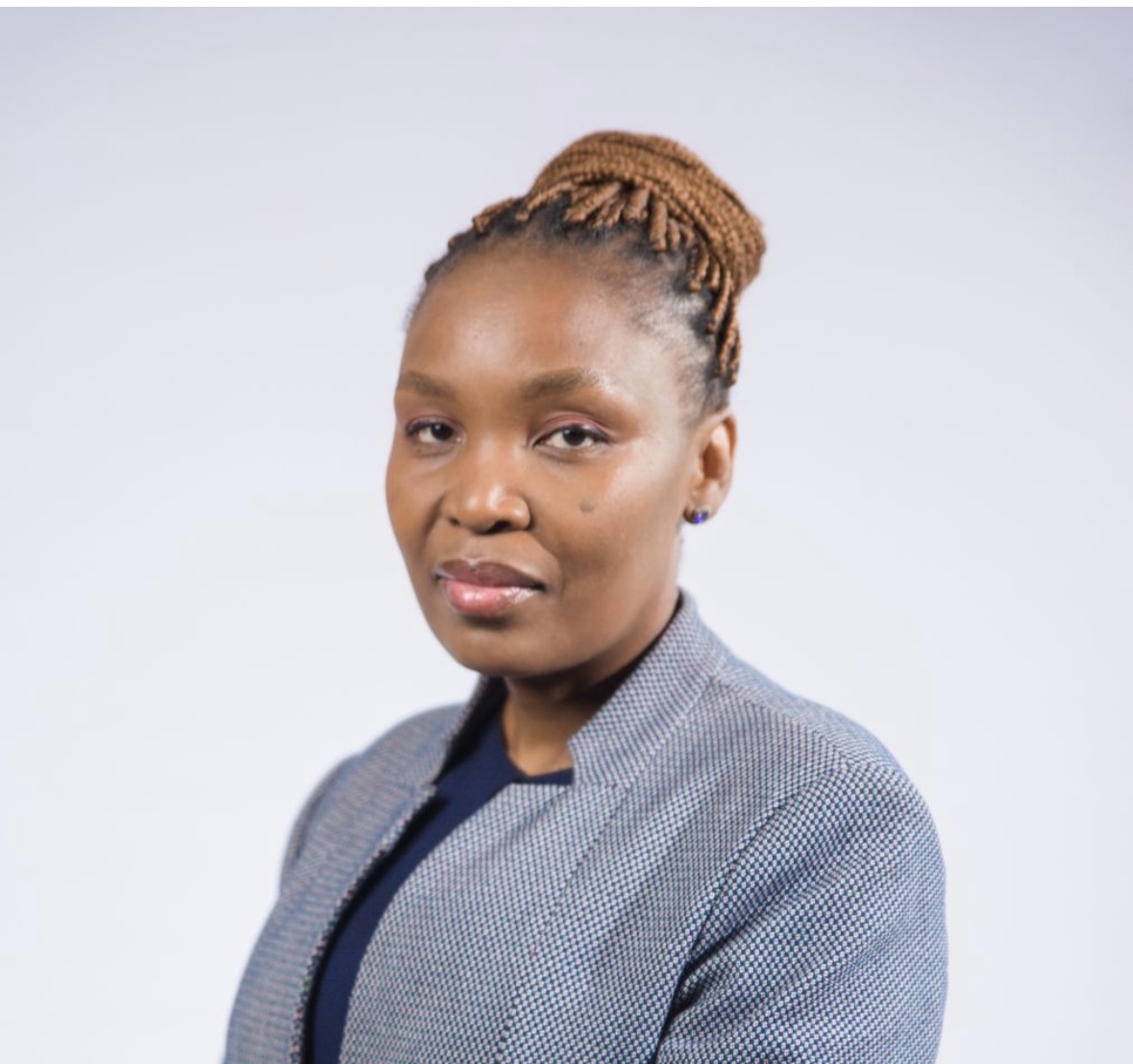 Nompucuko Nontombana’s experience in the public sector spans more than 20 years. She is currently employed as a Councillor at the Independent Communications Authority of South Africa (ICASA), where she plays an oversight role in her capacity as an executive board member. In this role she leads and supports various committees, including regulatory and governance committees, on behalf of the Council. Prior to joining ICASA she was the Manager: Market Conduct at the Competition Commission of South Africa. While at the Competition Commission she led and managed investigations and various mergers and acquisitions transactions, including presentation of cases to the Competition Tribunal for adjudication. In 2028 she was named one of 40 Women in their 40s in Competition Law Enforcement in Europe, the Americas and Africa. She holds a Master's degree in Economic Policy from the University of Stellenbosch and an MBL from UNISA. She is also a member of the Institute of Directors South Africa (IoDSA).
Nompucuko Nontombana’s experience in the public sector spans more than 20 years. She is currently employed as a Councillor at the Independent Communications Authority of South Africa (ICASA), where she plays an oversight role in her capacity as an executive board member. In this role she leads and supports various committees, including regulatory and governance committees, on behalf of the Council. Prior to joining ICASA she was the Manager: Market Conduct at the Competition Commission of South Africa. While at the Competition Commission she led and managed investigations and various mergers and acquisitions transactions, including presentation of cases to the Competition Tribunal for adjudication. In 2028 she was named one of 40 Women in their 40s in Competition Law Enforcement in Europe, the Americas and Africa. She holds a Master's degree in Economic Policy from the University of Stellenbosch and an MBL from UNISA. She is also a member of the Institute of Directors South Africa (IoDSA).
Renata Santoyo
Anatel
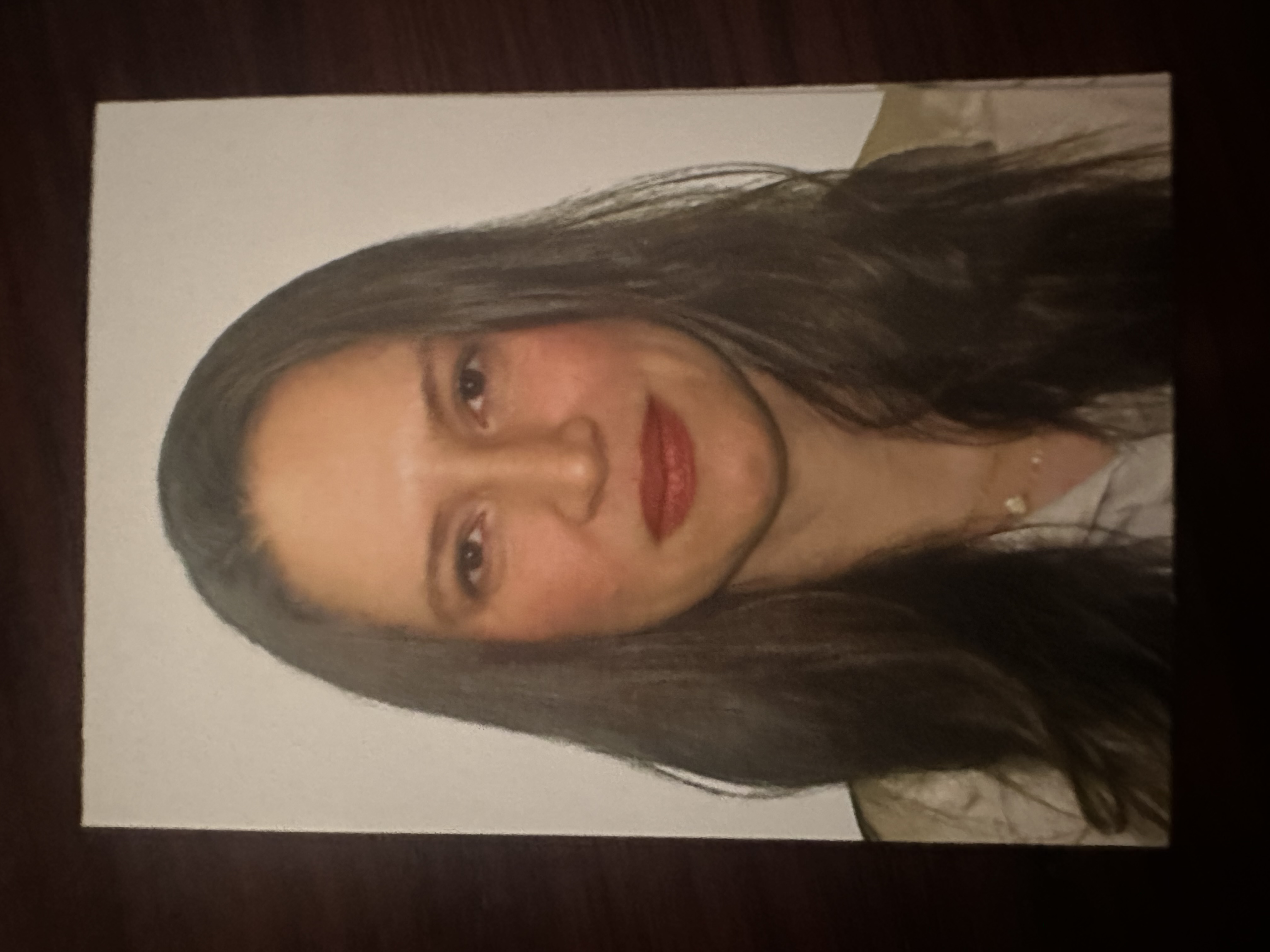
Renata Santoyo works in the International Affairs division of Anatel, the Brazilian telecommunications regulation agency, where she has been a government employee since 2005.
At Anatel she has worked with satellite regulation and spectrum, as an advisor in product certification and numbering, and as chairman of the Anatel Ethics Commission.
Rob Floyd
African Center for Economic Transformation
Rob Floyd is Director for Digital Policy and Innovations at the African Center for Economic Transformation (ACET), a pan-African policy institute based in Accra, Ghana. Rob oversees ACET’s programming related to artificial intelligence, digital policy, innovation policy, digital public infrastructure and data – as well as other programmes such as green industrialisation, global financial architecture reform, and the G20 Compact with Africa. Rob was a staff member at the World Bank for 29 years, serving in numerous senior roles including Chief of Staff to two World Bank Presidents, Country Director for Bangladesh, Director of the World Bank Institute and Operations and Strategy Director in the office of the CFO. While at the World Bank he developed some of the early lending programmes in Africa on digitalising the public sector and he launched the World Bank Innovation Labs. At ACET he oversaw the development of ACET’s work on digital and has led numerous groundbreaking initiatives such as the first AI challenge on regional infrastructure and ACET’s work on AI in economic policy making.
Saliem Fakir
African Climate Foundation
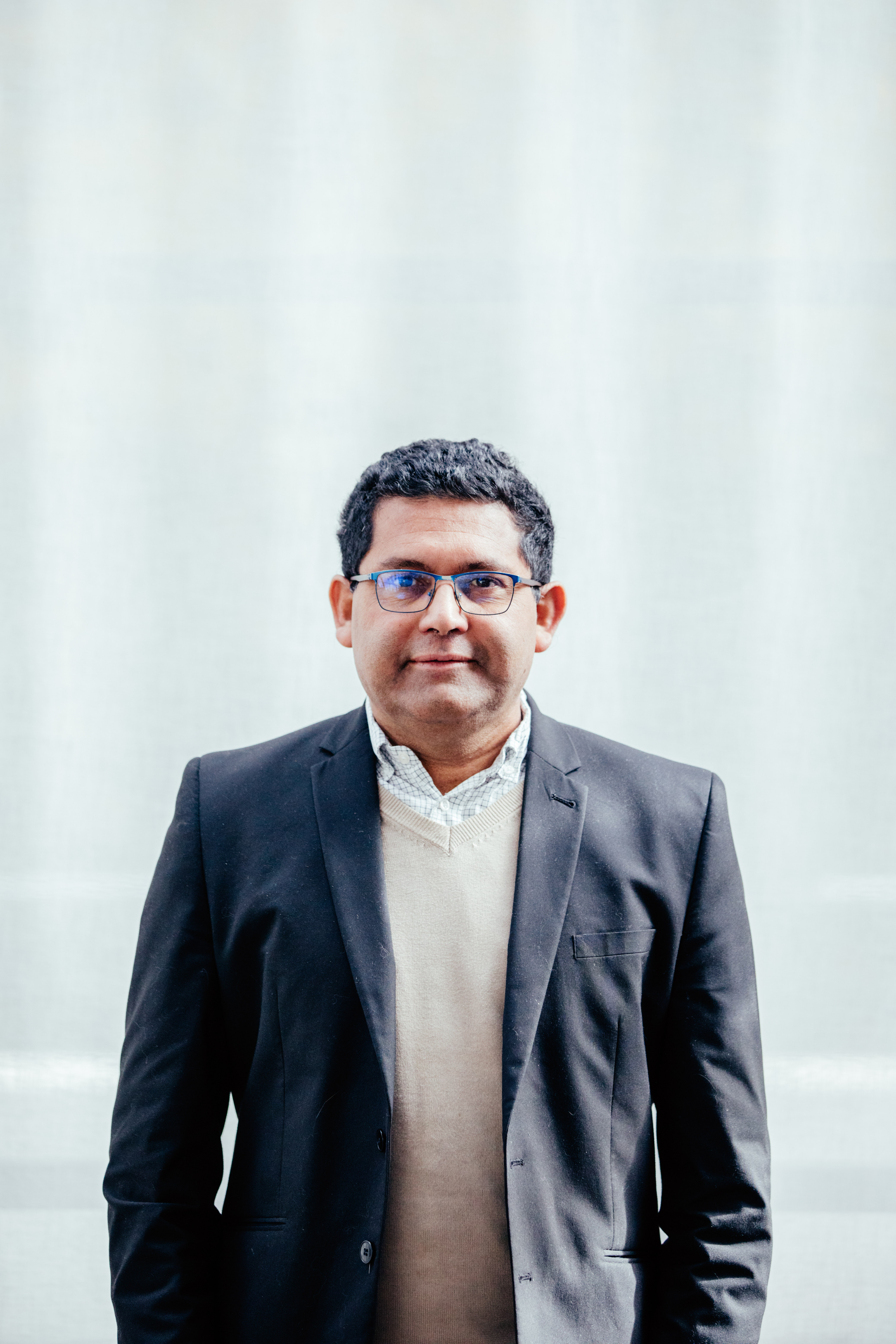 Saliem Fakir is an expert in the fields of climate, energy, finance and economics. He is the Founder and Executive Director of the African Climate Foundation, the first strategic grant-making foundation on the African continent focusing on delivering impact through supporting interventions at the climate-development nexus. He currently also holds the position of honorary lecturer at the Mandela School of Governance (UCT). Saliem has served on several Boards, including GreenCape, and is currently chair of the Board of the Atlantic Special Economic Zone. Prior to establishing the African Climate Foundation, Saliem served as the Head of the Policy & Futures Unit of WWF South Africa for 11 years and worked at Lereko Energy Investments. Saliem was a Senior Lecturer at the Department of Public Administration and Planning and an Associate Director for the Centre for Renewable and Sustainable Energy at Stellenbosch University. Earlier in his career, he spent eight years as Director of the World Conservation Union (IUCN-South Africa). He is a prolific writer who contributes regularly to leading South African publications like Engineering News, Business Day, the Daily Maverick, and has recently published his first book, Navigating Africa's Climate Development Nexus.
Saliem Fakir is an expert in the fields of climate, energy, finance and economics. He is the Founder and Executive Director of the African Climate Foundation, the first strategic grant-making foundation on the African continent focusing on delivering impact through supporting interventions at the climate-development nexus. He currently also holds the position of honorary lecturer at the Mandela School of Governance (UCT). Saliem has served on several Boards, including GreenCape, and is currently chair of the Board of the Atlantic Special Economic Zone. Prior to establishing the African Climate Foundation, Saliem served as the Head of the Policy & Futures Unit of WWF South Africa for 11 years and worked at Lereko Energy Investments. Saliem was a Senior Lecturer at the Department of Public Administration and Planning and an Associate Director for the Centre for Renewable and Sustainable Energy at Stellenbosch University. Earlier in his career, he spent eight years as Director of the World Conservation Union (IUCN-South Africa). He is a prolific writer who contributes regularly to leading South African publications like Engineering News, Business Day, the Daily Maverick, and has recently published his first book, Navigating Africa's Climate Development Nexus.
Sandile Nzima
Development Bank of Southern Africa

Sandile Nzima is the ICT Sector Specialist at the Development Bank of Southern Africa (DBSA), driving telecommunications and connectivity investments across Sub-Saharan Africa. He focuses on bridging the digital divide by expanding access in underserved communities and upgrading critical infrastructure to meet rising data demands. With experience in mobile network operators (MNOs) and a strong background in ICT, Sandile bridges technology and finance to deliver impactful, large-scale projects that support digital transformation. He holds an MBA from Wits Business School, a Bachelor’s Degree in Electrical Engineering, and a Postgraduate Diploma in Project Management.
Simon Ellis
UNESCO
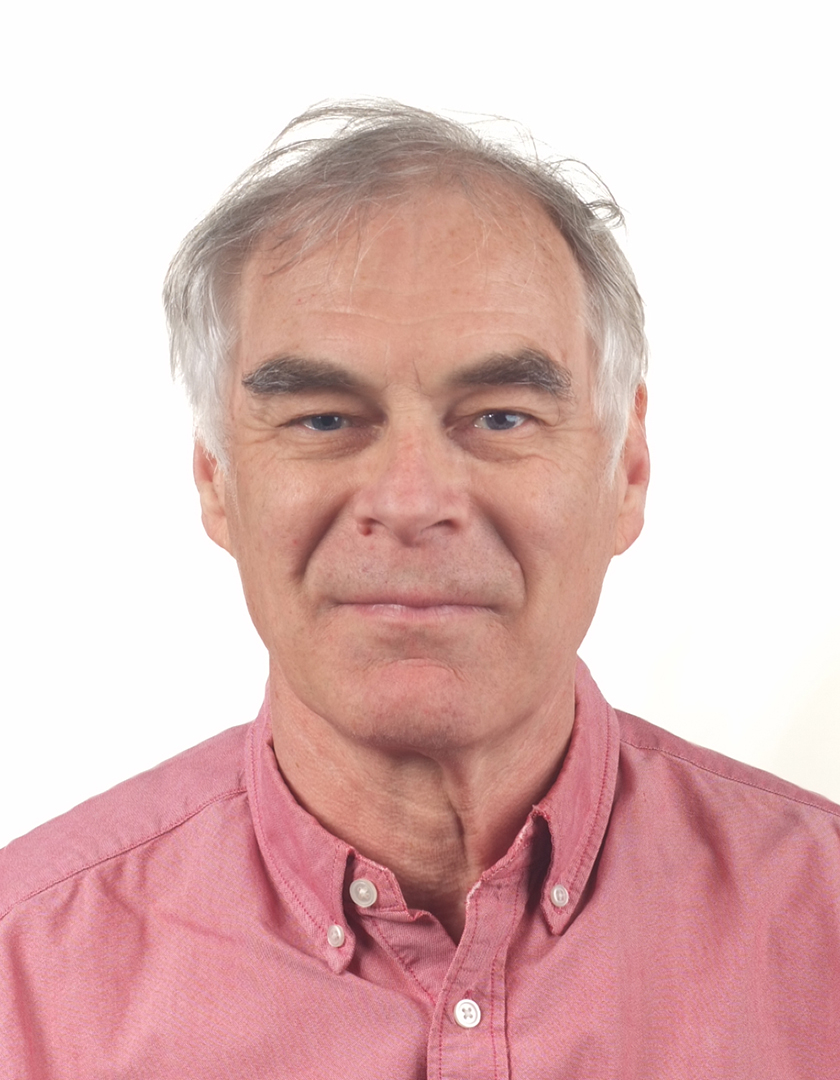 Simon Ellis has a DPhil from Lincoln College Oxford and worked in British local government in South Tyneside, Edinburgh and London before joining UNESCO in 2001. He has led every section of UNESCO Statistics in 2001-2012, introducing global indicators in Education, Literacy, Media, Internet and Science. Since 2012 has worked as an independent consultant concentrating on indicators for the Internet, Culture (especially craft), and TVET.
Simon Ellis has a DPhil from Lincoln College Oxford and worked in British local government in South Tyneside, Edinburgh and London before joining UNESCO in 2001. He has led every section of UNESCO Statistics in 2001-2012, introducing global indicators in Education, Literacy, Media, Internet and Science. Since 2012 has worked as an independent consultant concentrating on indicators for the Internet, Culture (especially craft), and TVET.
He has been involved in global internet governance since 2004 and the first WSIS Summit at Tunis, where he led the UNESCO Institute for Statistics team and released a publication on languages in cyberspace. After Tunis the team published global indicators for information literacy, ICTs in education, and libraries. In 2017, after leaving UNESCO Statistics, he began working with the UNESCO Internet Universality Indicators. Since then he has worked on assessments of more than 30 countries in all regions of the world, personally authoring reports on Thailand and the South Pacific Member of the UNESCO Information for All Working Group, and the ITU Expert Group on Household Surveys. He has contributed to the UNESCO Internet for Trust programme, presented for UNESCO at several global and regional meetings including the IGF (2020-2024), and in 2018-2020 was an advisor for the EU-Asia Connectivity Report (ASEM).
Shireen Powell
Project Isizwe
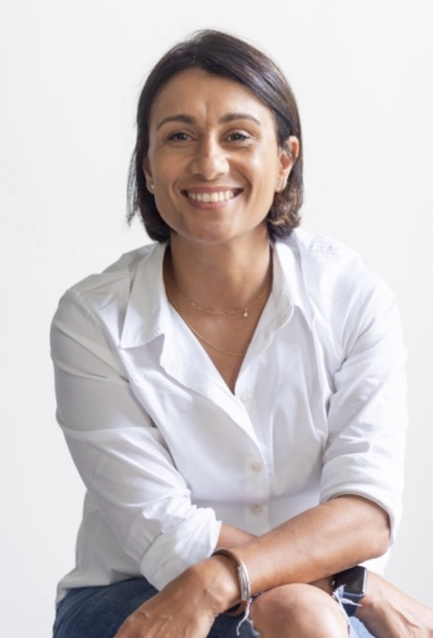
Shireen Powell is the CEO of Project Isizwe, a non-profit pioneering affordable internet access in underserved communities across South Africa. With over two decades of experience in the telecoms sector, Shireen transitioned to the social impact space in 2020, bringing a unique blend of industry insight and social justice advocacy to the challenge of digital inclusion. Under her leadership, Project Isizwe has grown into one of the most innovative connectivity initiatives on the continent – connecting schools, public spaces and townships with scalable, sustainable WiFi models. Shireen has spearheaded the organisation’s national education connectivity strategy, with a vision to connect all 17,500 unconnected South African schools. Her work bridges the gap between policy, technology and the lived realities of learners, educators and communities. A passionate believer in collaboration and local empowerment, Shireen’s approach blends technical systems with grassroots partnerships – creating models that are not only functional, but resilient. Whether through school-based access, R5 community WiFi, or township reseller networks, her focus remains clear: building digital public infrastructure that leaves no one behind.
Tawfik Jelassi
UNESCO
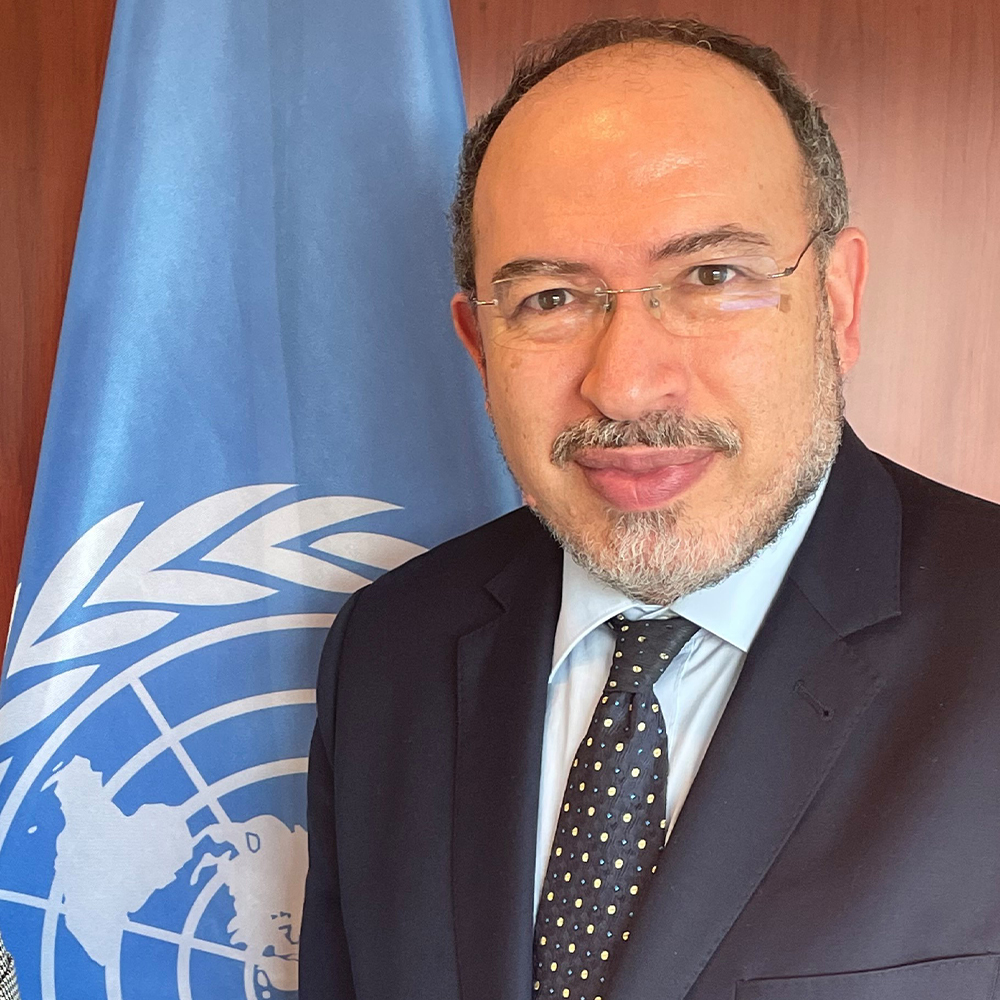 Assistant Director-General for Communication and Information at UNESCO since 2021, Dr. Tawfik Jelassi is responsible for UNESCO’s programmes on fostering freedom of expression, leading digital transformation, strategising the role of ICT in education, and building inclusive knowledge societies. He holds a Ph.D. in Management Information Systems from New York University and postgraduate diplomas from the University of Paris Dauphine. Former Minister of Higher Education, Scientific Research, and Information & Communication Technologies in Tunisia as well as Dean and Professor, he has extensive international experience in higher education, scientific research and digital technologies.
Assistant Director-General for Communication and Information at UNESCO since 2021, Dr. Tawfik Jelassi is responsible for UNESCO’s programmes on fostering freedom of expression, leading digital transformation, strategising the role of ICT in education, and building inclusive knowledge societies. He holds a Ph.D. in Management Information Systems from New York University and postgraduate diplomas from the University of Paris Dauphine. Former Minister of Higher Education, Scientific Research, and Information & Communication Technologies in Tunisia as well as Dean and Professor, he has extensive international experience in higher education, scientific research and digital technologies.
Yumna Panday
Zenzeleni Community Networks
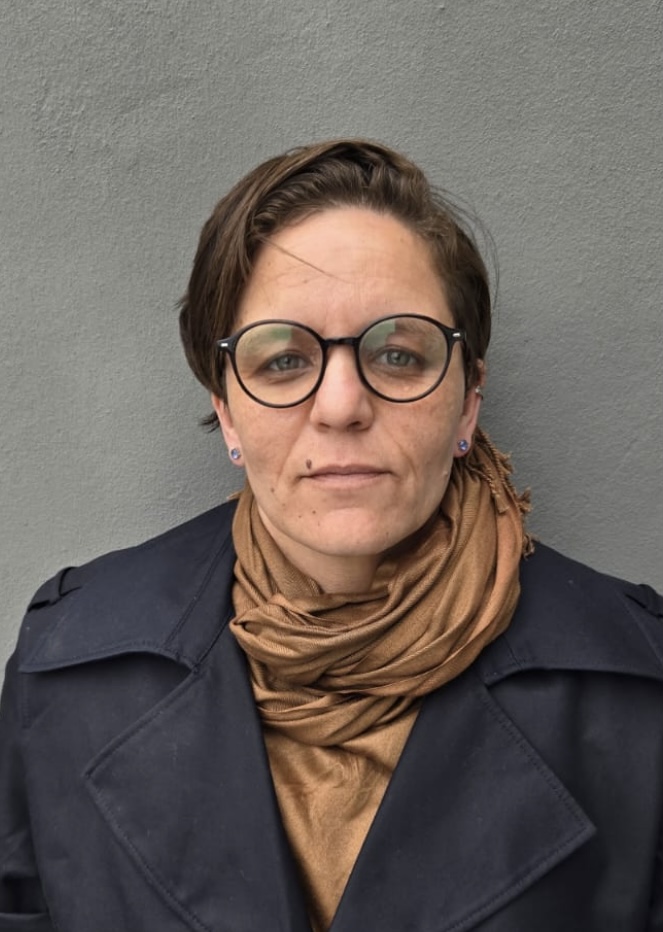 Yumna Panday serves as General Manager at Zenzeleni Community Networks. Since joining Zenzeleni in 2019, she coordinates connectivity projects in rural Eastern Cape, South Africa’s most underserved province. Her work focuses on the practical aspects of bringing affordable and reliable connectivity and access to meaningful information through initiatives such as the Mankosi Solar Community Hub. Since May 2025, Panday represents Zenzeleni Networks NPC at the Association for Progressive Communications (APC) and Local Networks (LocNet) initiative as National Coordinator for South Africa. In her role at Zenzeleni, she works with community members, traditional authorities, funders and partner organisations to develop connectivity solutions that meet regulatory standards while addressing local needs. Prior to joining Zenzeleni, Panday worked in operations and coordination across different sectors. Beyond her core responsibilities, Panday pursues professional development through courses in monitoring and evaluation, social entrepreneurship, and AI for operations.
Yumna Panday serves as General Manager at Zenzeleni Community Networks. Since joining Zenzeleni in 2019, she coordinates connectivity projects in rural Eastern Cape, South Africa’s most underserved province. Her work focuses on the practical aspects of bringing affordable and reliable connectivity and access to meaningful information through initiatives such as the Mankosi Solar Community Hub. Since May 2025, Panday represents Zenzeleni Networks NPC at the Association for Progressive Communications (APC) and Local Networks (LocNet) initiative as National Coordinator for South Africa. In her role at Zenzeleni, she works with community members, traditional authorities, funders and partner organisations to develop connectivity solutions that meet regulatory standards while addressing local needs. Prior to joining Zenzeleni, Panday worked in operations and coordination across different sectors. Beyond her core responsibilities, Panday pursues professional development through courses in monitoring and evaluation, social entrepreneurship, and AI for operations.